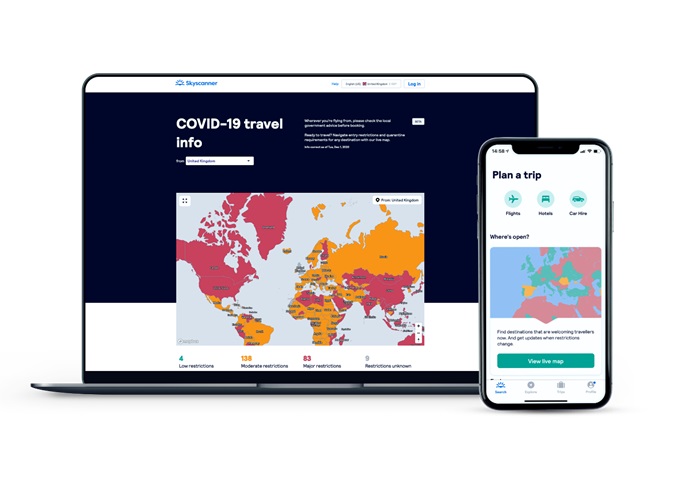The complexities and confusion around the rules that govern travel and hospitality mean that customers are taking a lot longer in considering a first purchase. Magith Noohukhan, Customer Engagement Evangelist at Braze, looks at the impact the pandemic has had on brand loyalty for hospitality and travel brands and strategies for better retention.
While attitudes towards travel are beginning to improve as pandemic restrictions ease off, the complexities and confusion around travelling rules are leaving consumers unsure if, when and where it will be safe to travel. As a result, they are taking a lot longer to consider their first travel purchase post-pandemic, which shows that travel brands have a lot of work ahead to ensure that consumers feel confident about booking their next trip.
Data from Braze shows that users who booked travel between February of 2020 took an average of 105 days to make the first purchase – but were 59% more likely to purchase than users who first engaged in the surrounding months. This means that users who engaged with travel brands right before COVID-19 hit only began making purchases during Summer 2020, due to rescheduled trips or promotions by travel brands.
As the world reopens for travel, timely and personalised communication has never been more important. It will be critical in helping travel brands to win customer loyalty and engagement in the short term. And, over the long term, could be the difference between the travel brands that thrive, and those that don’t.
The evolution of customer expectations
Just as many of our habits have drastically changed during the pandemic, so have our expectations and preferences regarding travelling. Gone are the days we could book a weekend trip on a whim and not have to worry about anything other than language barriers and to make sure we got the right bus in an unfamiliar city. In the post-pandemic world, COVID-19 safety measures are now a top priority for UK consumers, as 53% of them said it was their number one factor when deciding which travel brand to purchase from. At the same time, 52% of them consider that not enforcing COVID-19 safety measures would be a deal-breaker for them. This is likely to remain the case for the foreseeable future and must be a priority for travel brands if they want to bring customers back.
UK consumers are some of the readiest in the world to comply with the rules. Half of them are happy to share their vaccination status if it means they can travel – but, admittedly, the confusing international rules regarding travel would test the patience of most travellers. 55% of UK consumers find the restrictions too confusing, especially as destinations get moved on and off the UK’s Green List, and countries keep changing their requirements for vaccination, testing and quarantine. In fact, 56% of them wish they had better clarification and communications to help them navigate those rules. In the midst of all this, travel brands must become the guiding light for consumers to have clarity and confidence when travelling. This is likely to become a top expectation for customers, who will want the travel brands they choose to provide them with the clarity around requirements that they’re not getting from governments.
Boost engagement by highlighting valuable features
To better navigate the road to recovery, travel brands need a clear and consistent engagement plan that puts customer needs front and centre. These times of uncertainty will require consumer relationships to be rebuilt, but they also give brands a chance to stand out and gain lifelong loyalty – if they rise to the occasion. One company that achieved this is Skyscanner, as it helped travellers find answers to their questions about COVID-19 guidelines and border restrictions. Skyscanner offered customers the opportunity to use its “Where Can I Go” map in a personalised email campaign, which was sent via API triggers when there was a relevant change in border restrictions and/or quarantine information. This led to open and click-through rates that were 3-4x higher than average – clearly showing appetite from consumers for this kind of transparent and personalised connection from travel brands.

Building back brand loyalty across the whole customer base
Customer expectations and preferences are not the only things that evolved during the pandemic: brand loyalty has also changed. Between not being able to travel and getting refunds and vouchers at the start of the pandemic for cancelled trips, the relationship between customers and travel brands has suffered a few setbacks over the past year. This is especially true for the Boomer generation as only 50% of them now favour a particular travel brand, and 60% could be easily swayed by a better deal elsewhere. And whereas younger generations seem more loyal (81% of Gen Z and 75% of millennials favour specific travel brands), brands should not get too comfortable. Building long-lasting brand loyalty across the whole customer base cannot rest solely on offering good deals. Instead, now is the time for travel brands to focus on engaging their customers through transparent, timely and personalised communications that offer clarity and reassurance. And, as the generational differences show, it cannot be a one-size-fits-all strategy. Travel brands must ensure they get to know their customer base inside out, with their specific preferences and expectations. Only then will they be able to offer the type of communications that will build long-lasting brand loyalty, long after the pandemic.
Now is the time for travel brands to build strong customer engagement. Travel brands and operators need to ensure that customer communications are clear and transparent – only then will people be reassured about the rules and safety measures in place, and confident to book a trip this summer.

